Wada code needs 'forceful' monitoring - UK Anti-Doping chief
- Published
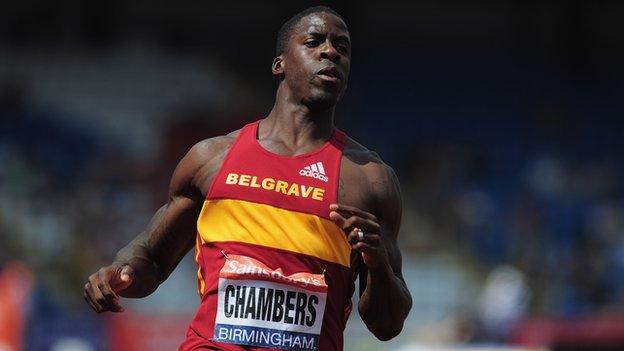
Dwain Chambers
The World Anti-Doping Agency has been told to get tough on sports, and countries, which do not comply with a proposed four-year ban for drug cheats.
The increase from two to four years is expected to be ratified at next week's Wada conference in Johannesburg.
UK Anti-Doping chief executive Andy Parkinson told BBC Sport: "The delivery of the code should be monitored in a more forceful way.
"If people don't do it willingly then there needs to be consequences."
If the regulations are passed, they will come into force in January 2015.
Under the current code the standard ban is two years but it can go up to four in the case of aggravating circumstances, although that has been rare.
British sprinter Dwain Chambers is an example of an athlete banned from competition for two years, external when he was found guilty of taking the anabolic steroid THG in 2004.
From 2015, athletes caught using one of the serious doping agents, such as steroids or growth hormones, will get four years unless they can prove they did not intend to break the rules.
There had been fears that tougher penalties would not withstand legal challenges.
But Jonathan Taylor, a sports lawyer who specialises in doping issues, says the authorities are in a strong position.
He told BBC Sport: "The sports body has to prove this is necessary to protect our sport.
"Here you've got a world anti-doping code, with all of the countries and all of the sports signed up. They are saying 'to protect our sport, where it's a serious substance, it's intentional cheating and we need a four-year ban'.
"I think, at that stage, you're in a much stronger position to defend that from a legal challenge."
Recent cases in Jamaica and Kenya have highlighted differences in the way nations carry out their anti-doping obligations.
Parkinson says Wada needs to change in order to focus on code compliance.
He added: "The level playing field is an ambition. I think what we all recognise is that certain countries have different priorities and different resources.
"What we want is to get to where there is a good faith agreement between all signatories to the code in all nations and sports, that they will do their utmost to tackle this issue, that they will allocate sufficient resources and that they will seek help if they can't do that.
"We have to keep striving for it because it's what our athletes want. They're continually talking to us and saying 'we don't mind you expecting us to provide urine samples, blood samples, provide whereabouts, but we would quite like it if our competitors did the same please'."
Parkinson has revealed that a proposal to monitor athletes' movements by electronic tagging or by tracking their mobile phones to help the application of the 'whereabouts rule' has been discussed but rejected by UKAD.
- Published31 October 2013
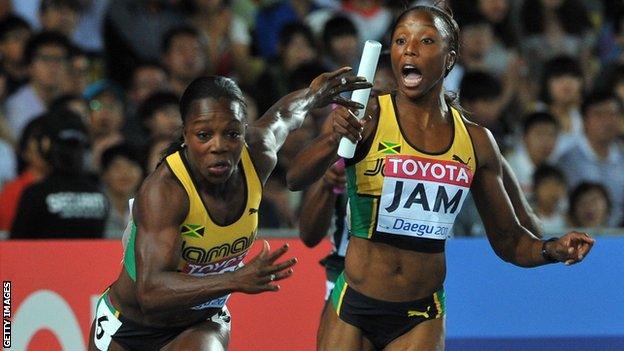
- Published30 October 2013
- Published29 October 2013
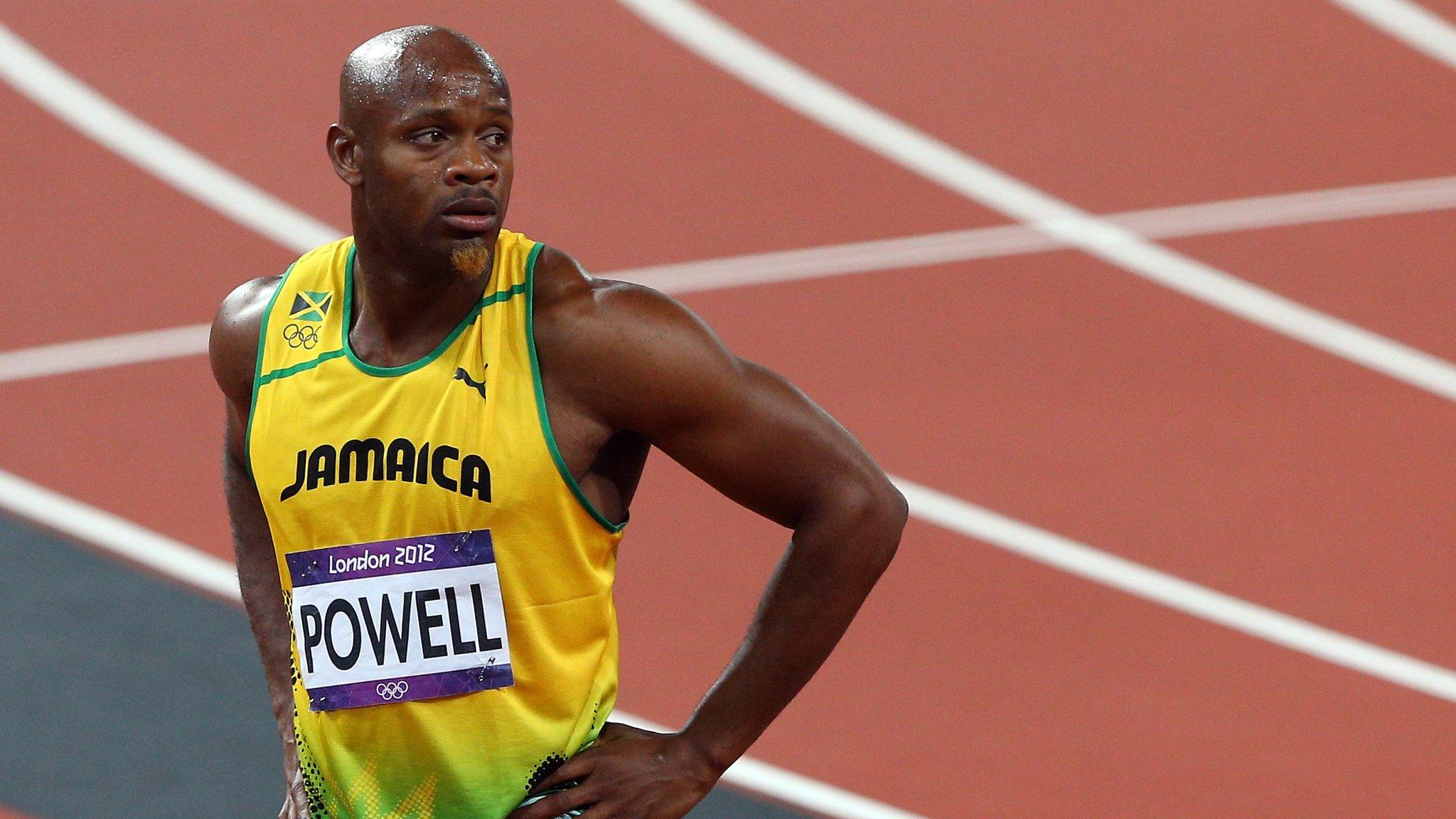
- Published14 October 2013
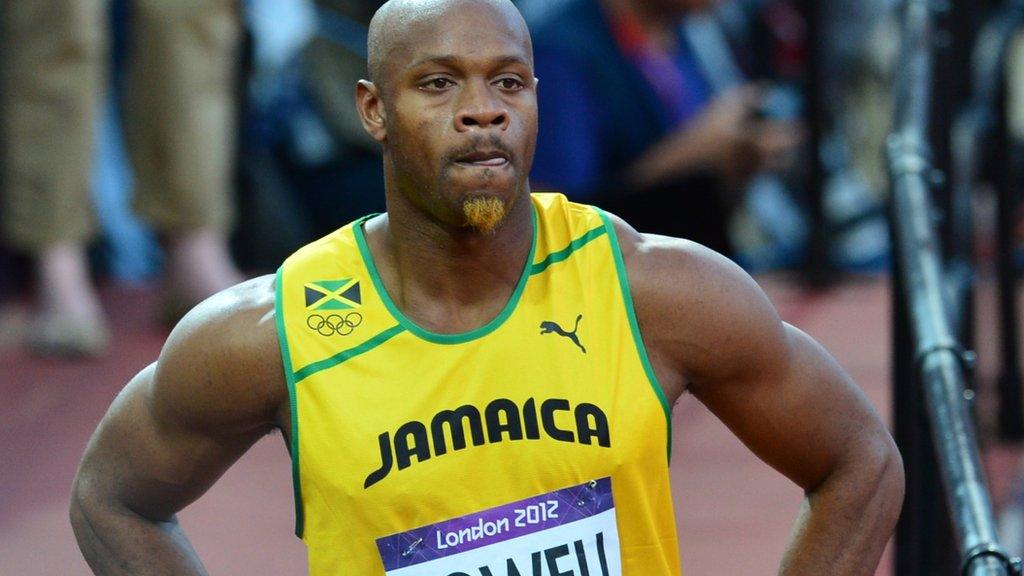
- Attribution
- Published28 September 2012
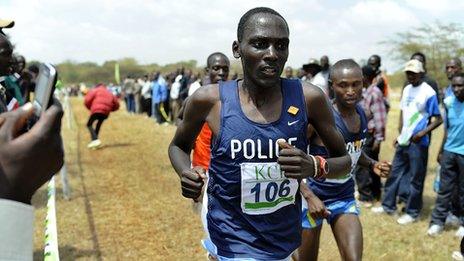
- Published10 September 2015

- Published8 February 2019
